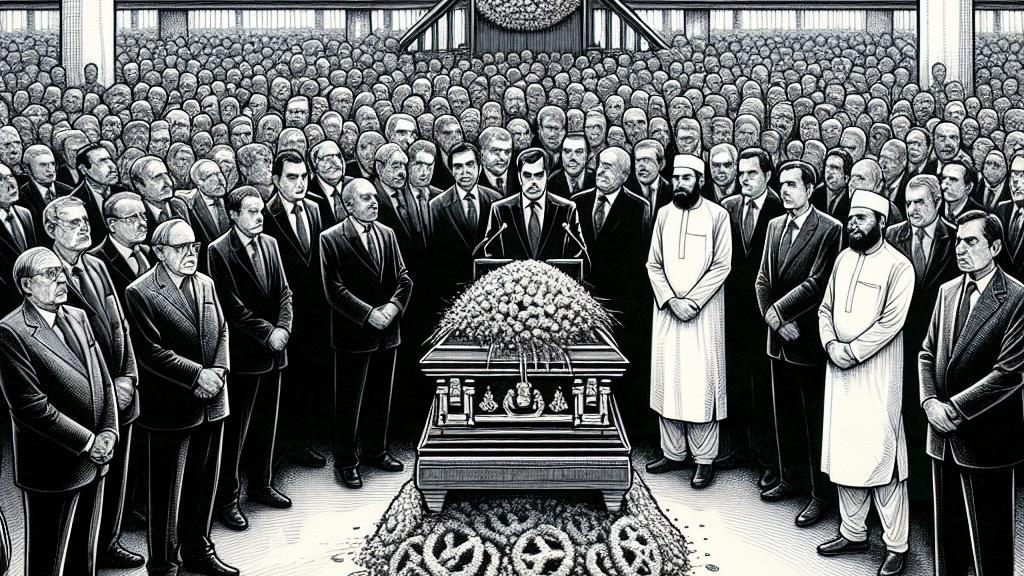Reflections on Pravin Gordhan's Legacy: A Call for Renewal
Overview
- An emotionally charged farewell for Pravin Gordhan, echoing calls for renewal and integrity in South Africa's governance.
- Mourners highlighted an urgent need to tackle pervasive state capture and corruption that threaten the nation’s democracy.
- Diverse perspectives illuminate the complex dimensions of Gordhan's political legacy and his profound impact on South African society.

Gordhan's Funeral: A Heartfelt Call for Action
Pravin Gordhan's funeral was not just a somber occasion—it became a powerful platform for reflection and action. Key figures, including President Cyril Ramaphosa, gathered to pay their respects, turning their grief into a passionate call for change. Ramaphosa's eulogy captured the essence of Gordhan’s legacy; it was a reminder that the fight against state capture remains unfinished. Echoing Mac Maharaj's words, he urged the ANC to put its house in order, emphasizing that if Gordhan stood for anything, it was the principle of accountability. This gathering underscored that Gordhan's commitment to a just society demands renewed dedication from everyone.
Polarized Views: The Debate Over Legacy
In the wake of Gordhan's passing, a vibrant and often contentious dialogue has erupted over his legacy. To many, he is a revered champion of integrity and accountability; a beacon of hope amid the storm of corruption that has plagued the nation. However, critics, including voices from the Democratic Alliance, argue otherwise. They contend that under his stewardship, challenges in state-owned enterprises, particularly Eskom’s destructive load-shedding, escalated dramatically. This conflicting narrative demonstrates the intricate complexities of Gordhan's leadership, where he is seen both as a guardian of principles and as a figure entwined in the realities of political struggles.
State Capture: A Controversial Narrative in Focus
The term 'state capture' itself has become a focal point in the discourse surrounding Gordhan. Some, like former ANC chief whip Tony Yengeni, have gone as far as claiming that Gordhan fabricated this concept to divert attention from deeper issues within the ANC. Yet, many believe this term represents the very real threat to democracy and the rule of law in South Africa. Ramaphosa’s tribute to Gordhan reflects this sentiment, recognizing him as a stalwart in the crusade against corruption. Ultimately, Gordhan’s legacy serves not just as a reflection of his personal convictions, but as a crucial chapter in South Africa’s ongoing battle for ethical governance, significantly shaping the nation’s political landscape.

Loading...